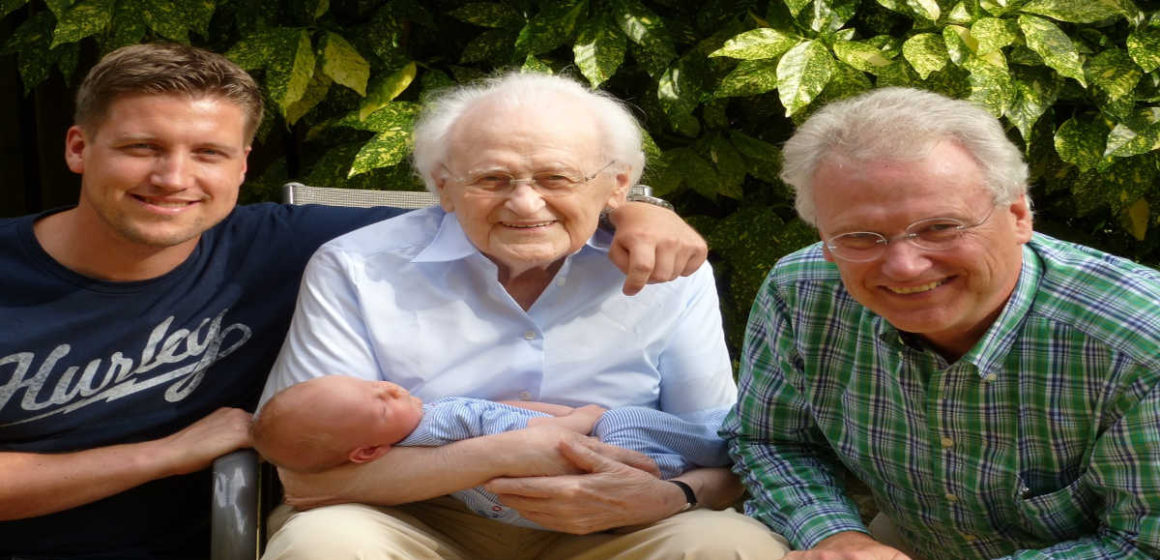Transgenerational Trauma Unveiled: The Shocking Link Between Past and Present Trauma
Are you familiar with the term “Transgenerational Trauma?” It refers to the subconscious transmission of traumatic experiences from one generation to another, a concept only recognized as a field of research in the 2000s.
Our blog post today aims at shedding light on this issue, helping you understand its causes, impacts and steps for healing. Ready to delve into an unexplored facet of mental health?.
Understanding Transgenerational Trauma
Transgenerational trauma is a phenomenon that involves the transmission of emotional and psychological distress from one generation to the next, often affecting specific groups of people who have experienced historical traumas such as slavery or war.
Definition and description
Transgenerational trauma stands for the transfer of traumatic experiences from one generation to the next. This phenomenon occurs subconsciously as severe forms of trauma like sexual abuse, murder, or even discrimination and racism get passed on.
It has a significant impact on groups, affecting them based on their cultural identity including ethnicity and nationality. The cycle continues through biology, learned behaviors, or shared experiences thus having both psychological and physiological consequences on subsequent generations.
Identified only recently in the 2000s as a dedicated research field, it further extends into different types such as intergenerational trauma – resulting from prior generations’ traumas.
Historical trauma
Historical trauma harks back to distressing events experienced by a group of people. It can be seen in African American communities where the atrocities of slavery still cast a long shadow, and instances of generational trauma emerge from this shared history.
Similarly, other forms of discrimination or experiences, such as war or genocide, have imposed collective suffering on entire populations. A traumatic past lingers not only in memories but also manifests physically through feelings of fear and hypervigilance that are difficult to shake off generations later.
Studies suggest that severe stress responses may even alter our DNA structure leading to transgenerational trauma effects often found in descendants of these targeted groups.
Symptoms and affected groups
Transgenerational trauma significantly impacts certain groups and manifests in various symptoms. Here are some examples:
- Native Americans: Experiences of displacement, assimilation strategies, and genocide contribute to the trauma passed through generations in this community.
- African Americans: Historical events such as slavery and racial discrimination have led to a cycle of generational trauma among African Americans.
- Holocaust survivors’ descendants: The atrocities experienced during the Holocaust have left deep emotional scars that can manifest in subsequent generations.
- Anxiety and Depression: Individuals facing transgenerational trauma often suffer from feelings of constant worry and sadness.
- Post-Traumatic Stress Disorder (PTSD): Flashbacks, nightmares, emotional numbness are frequently reported by those impacted by generational trauma.
- Substance Abuse: Some people may resort to drugs or alcohol as a coping mechanism for unresolved grief and loss.
- Physical Illnesses: Evidence suggests that intergenerational trauma could lead to an increase in heart diseases, diabetes, obesity, among other physical ailments.
- Difficulty forming relationships: Trust issues arising from inherited trauma can influence a person’s ability to form and maintain healthy relationships.
Causes and Transmission of Transgenerational Trauma
Transgenerational trauma is caused by various factors, including epigenetic changes and psychological transference, resulting in the transmission of traumas across generations.
Epigenetic changes
Epigenetic changes play a significant role in the transmission of transgenerational trauma. These changes refer to modifications in gene expression that do not alter the DNA sequence but can be inherited by future generations.
Studies have shown that traumatic experiences can lead to alterations in genes related to stress response and emotion regulation. This means that individuals who have experienced trauma may pass on these altered gene expressions to their children and grandchildren, predisposing them to heightened stress reactions and mental health issues.
Epigenetic changes are a crucial mechanism through which transgenerational trauma is perpetuated, highlighting the lasting impact that traumatic events can have on future generations.
Psychological transference
Psychological transference is a key factor in the transmission of transgenerational trauma. It occurs when individuals unconsciously transfer their own unresolved traumas and emotions onto others, particularly their children and loved ones.
This can manifest as emotional patterns, behaviors, beliefs, and even symptoms of trauma that are unknowingly passed down through generations. For example, if a parent experienced severe abuse as a child but never addressed it, they may unintentionally perpetuate abusive patterns with their own children.
Similarly, if a grandparent lived through a traumatic event like war or natural disaster, the resulting fear and anxiety may be inherited by future generations. Understanding the role of psychological transference is crucial for breaking the cycle of generational trauma and promoting healing within families and communities.
Examples of transgenerational trauma
Transgenerational trauma can manifest in various ways, affecting individuals and communities. Here are some examples:
- African Americans who still experience the effects of slavery and racial discrimination carried down through generations.
- Holocaust survivors and their descendants who continue to bear the psychological scars of genocide.
- Indigenous populations dealing with the trauma caused by colonization, forced assimilation, and cultural genocide.
- Families affected by war or political violence, where subsequent generations inherit the pain and trauma experienced by their ancestors.
- Individuals whose parents or grandparents suffered from addiction or mental health issues, leading to intergenerational trauma.
Impact on Parenting and Family Dynamics
Trauma can deeply impact parenting and family dynamics, creating a cycle of generational trauma. Understanding how trauma affects parenting is crucial for breaking the cycle and fostering healing within families.
Explore this section to learn more about the profound impact of transgenerational trauma on families and discover strategies for promoting healthy relationships and resilience.
How trauma affects parenting
Trauma can have a profound impact on parenting, affecting both the parent and the child. Parents who have experienced trauma may struggle with emotional regulation, leading to difficulty in providing consistent care for their children.
They may also exhibit hypervigilance or withdrawal, which can create an unpredictable or distant environment for their children. Furthermore, trauma can disrupt attachment between parents and children, making it challenging to establish healthy relationships.
It is important to understand how trauma affects parenting in order to provide support and resources for both parents and children affected by generational trauma.
Generational trauma examples
Generational trauma examples include:
- Descendants of African Americans who experienced slavery and its repercussions.
- Individuals whose families survived the Holocaust and continue to bear the psychological scars.
- Communities affected by colonization, displacement, or forced assimilation.
- People impacted by war, such as veterans and refugees.
- Indigenous populations facing ongoing marginalization and cultural erasure.
Trauma and our genes
Our genes play a critical role in the transmission of trauma from one generation to the next. This process is facilitated through epigenetic changes, which can alter the way genes function without changing the DNA sequence. Here’s an overview of how trauma impacts our genes.
|
Overview |
|
Our DNA carries the blueprint of our genetic information. Changes to this blueprint, either in the DNA sequence or through modifications of gene expression, can impact our biological responses. |
|
Epigenetic changes don’t alter the DNA sequence but change how genes are expressed. This can be influenced by the environment and experiences, including traumatic ones. |
|
These changes can be hereditary, meaning they can be passed on to subsequent generations. Thus, trauma experienced by one generation can leave genetic imprints on the next. |
|
Research has shown that trauma can lead to alterations in the expression of genes linked to stress response. Consequently, children of individuals who experienced trauma may show heightened sensitivity to stress. |
|
Understanding this link between trauma and our genes is essential to breaking the cycle of transgenerational trauma. It provides insights into the physiological components of trauma transmission and can help in developing targeted interventions. |
Revolutionizing Your Approach to Stress and Trauma
Revolutionizing your approach to stress and trauma involves taking a proactive and holistic approach to healing. Instead of simply coping with the symptoms, it’s important to address the root causes of the stress and trauma you may be experiencing.
This can be done through various techniques such as mindfulness, therapy, and self-care practices. By understanding the impact of transgenerational trauma and its effects on our genes, we can begin to break the cycle and create new pathways for healing.
One way to revolutionize your approach is by incorporating mindfulness into your daily life. Mindfulness helps us become more aware of our thoughts, feelings, and bodily sensations in the present moment without judgment.
It allows us to cultivate self-compassion, reduce anxiety, and improve overall well-being. Additionally, therapy can play a crucial role in healing from transgenerational trauma by providing a safe space for processing emotions and gaining new perspectives.
Taking care of yourself is also key in revolutionizing your approach to stress and trauma. Engaging in activities that bring you joy, practicing relaxation techniques such as deep breathing or yoga, getting regular exercise, eating a balanced diet, and connecting with supportive individuals are all essential components of self-care that can help alleviate symptoms of stress.
As we continue to learn more about transgenerational trauma research fields emerge bringing promising interventions which enable breakthroughs in treatment options available for those affected by these traumas.
The effort put towards breaking this cycle is not only vital for individual healing but also creates a ripple effect within families & communities at large.
Essential Tips on Dealing with Grief and Loss
Dealing with grief and loss can be a challenging experience. Here are six essential tips to help you navigate through this difficult time:
- Seek support from loved ones: Reach out to family and friends who can provide comfort and understanding during your grieving process.
- Allow yourself to grieve: Give yourself permission to feel the emotions that come with loss, whether it’s sadness, anger, or confusion. It’s important to acknowledge and process these feelings.
- Take care of your physical health: Engage in self-care activities like exercise, eating nutritious foods, and getting enough rest. Taking care of your physical well-being can have a positive impact on your emotional well-being.
- Express your emotions: Find healthy outlets for expressing your grief, such as journaling, painting, or talking to a therapist. These activities can help you process your feelings and provide a sense of release.
- Create rituals or memorialize the person you lost: Honoring the memory of your loved one can help bring closure and provide comfort. Consider creating a memorial space or participating in rituals that hold significance for you.
- Educate yourself about grief: Learning about the grieving process can help normalize your experience and give you insights into what to expect. Books, online resources, and support groups are valuable sources of information.
Differentiating Transgenerational and Historical Trauma
Transgenerational trauma and historical trauma are two related but distinct concepts. Transgenerational trauma refers to the transmission of traumatic experiences from one generation to the next, while historical trauma encompasses the collective trauma experienced by a particular group over time.
Transgenerational trauma is often rooted in specific events or experiences within families, such as sexual abuse, violence, or displacement. This type of trauma can be passed down through biological mechanisms like epigenetic changes or learned behaviors that perpetuate unhealthy patterns.
On the other hand, historical trauma affects entire communities or cultural groups who have endured systemic oppression, discrimination, or violence throughout their history. Examples include slavery and its impact on African Americans or colonization’s effects on indigenous populations.
While both transgenerational and historical traumas leave lasting psychological and physiological impacts on subsequent generations, understanding these distinctions helps us appreciate the broader context in which intergenerational traumas occur.
By acknowledging and addressing both types of traumas, we can develop more effective strategies for healing and breaking the cycle of generational pain.
Treatment and Interventions for Transgenerational Trauma
Promising interventions and types of therapy can help individuals and families heal from transgenerational trauma.
Promising interventions
Promising interventions for transgenerational trauma include:
- Therapy: Seeking professional help from a therapist who specializes in trauma can provide a safe space to process and heal from inherited trauma.
- Support groups: Joining support groups with others who have experienced similar traumas can offer a sense of belonging and understanding.
- Mind-body practices: Engaging in mindfulness, yoga, or other mind-body practices can help regulate emotions and reduce the impact of trauma on the body.
- Education and awareness: Educating oneself about transgenerational trauma can empower individuals to break the cycle and make informed choices for healing.
- Self-care: Prioritizing self-care activities such as exercise, getting enough sleep, and engaging in hobbies that bring joy can contribute to overall well-being.
- Healthy coping strategies: Developing healthy coping mechanisms like journaling, art therapy, or practicing relaxation techniques can assist in processing and managing traumatic experiences.
Types of therapy that help
Effective therapy is crucial for breaking the cycle of transgenerational trauma. Here are some types of therapy that can help:
- Cognitive Behavioral Therapy (CBT): This type of therapy focuses on changing negative patterns of thinking and behavior by identifying and challenging negative beliefs.
- Eye Movement Desensitization and Reprocessing (EMDR): EMDR helps individuals process traumatic memories and reframe them in a more positive light through eye movements or other bilateral stimulation techniques.
- Dialectical Behavior Therapy (DBT): DBT combines individual therapy, group skills training, and coaching to help individuals regulate emotions, improve relationships, and develop coping strategies.
- Trauma-Focused Cognitive Behavioral Therapy (TF-CBT): TF-CBT is specifically designed for individuals who have experienced trauma and incorporates specific techniques to help process and heal from traumatic experiences.
- Family Therapy: Family therapy involves the participation of the entire family system to address transgenerational trauma, improve communication, and promote healing within the family unit.
- Group Therapy: Group therapy provides a supportive environment where individuals can share their experiences with others who have undergone similar traumas, fostering understanding, validation, and healing.
- Mindfulness-Based Therapies: Mindfulness-based therapies like mindfulness-based stress reduction (MBSR) or mindfulness-based cognitive therapy (MBCT) help individuals cultivate present-moment awareness and develop coping mechanisms for managing stress and trauma-related symptoms.
- Expressive Therapies: Art therapy, music therapy, dance/movement therapy, or drama therapy can be beneficial in helping individuals express feelings that are difficult to put into words and facilitate healing.
Ending the Cycle of Transgenerational Trauma
Breaking the cycle of transgenerational trauma is a complex and challenging process, but it is possible with understanding, awareness, and healing interventions. By recognizing the impact of trauma on our lives and the lives of future generations, we can take proactive steps towards ending this cycle.
Therapy and counseling play an essential role in addressing unresolved traumas and providing support for individuals seeking healing.
Education and raising awareness about transgenerational trauma are also crucial in preventing its perpetuation. By learning about our collective history and acknowledging past traumas, we can begin to heal as individuals and as communities.
This can involve sharing stories, promoting empathy, and engaging in open dialogue about personal experiences.
Additionally, self-care practices such as mindfulness exercises, healthy coping mechanisms, physical activity, and connecting with supportive networks can help break free from the grip of generational trauma.
Seeking out resources like support groups or online forums that focus on recovery from transgenerational trauma can provide a sense of community during the healing journey.
Ultimately, ending the cycle of transgenerational trauma requires each individual’s commitment to their own healing process while fostering a supportive environment for others. It is through compassion, understanding, education, therapy,and self-care that we have the power to overcome generational pain for ourselves and future generations.
Resources and Support for Understanding and Healing
There are resources and support available to help individuals understand and heal from transgenerational trauma. Here are some options to consider:
- Therapy: Seeking professional help through therapy can provide a safe space to explore and process the effects of transgenerational trauma. Therapists trained in trauma-focused approaches, such as Eye Movement Desensitization and Reprocessing (EMDR) or cognitive-behavioral therapy (CBT), can assist in healing.
- Support groups: Connecting with others who have experienced similar traumas can be beneficial. Support groups provide a sense of community, validation, and understanding.
- Educational materials: Books, articles, and documentaries on transgenerational trauma can offer valuable insights and information. They can help individuals gain a deeper understanding of their experiences and equip them with tools for healing.
- Cultural resources: Many cultural communities have specific resources tailored to addressing transgenerational trauma within their respective contexts. These resources may include cultural healing practices, ceremonies, or community organizations that focus on supporting individuals dealing with intergenerational traumas.
- Online forums and communities: Participating in online forums or joining virtual communities allows individuals to connect with others around the world who are also navigating the impacts of transgenerational trauma. Sharing experiences, seeking advice, and receiving support from these online spaces can be helpful for healing journeys.
- Self-care practices: Engaging in self-care activities is crucial for managing the effects of transgenerational trauma. This may involve practicing mindfulness exercises, engaging in creative outlets like art or writing, prioritizing sleep and rest, establishing healthy boundaries, and engaging in physical activities that promote well-being.
- Community organizations: Local community organizations often provide support groups, workshops, counseling services, and other resources specifically designed for those affected by transgenerational trauma. These organizations can offer guidance on accessing additional support networks and services in your area.
- Healing retreats/workshops: Retreats or workshops focused on healing from transgenerational trauma can provide a concentrated and immersive environment for healing. These experiences often include therapeutic interventions, holistic practices, and opportunities for personal growth.
- Mental health hotlines: Helplines dedicated to mental health are available in many countries and provide immediate support to those in distress. These hotlines can be a valuable resource if you need immediate assistance or are unsure where to turn for help.
- Mental health professionals specializing in trauma: Seeking out mental health professionals who specialize in trauma therapy is essential. They have the expertise and knowledge to guide individuals on their healing journey effectively.
Criticisms and Limitations of Transgenerational Trauma Theory
Critics of the transgenerational trauma theory argue that it lacks sufficient empirical evidence to support its claims. Some researchers believe that attributing psychological and physiological effects solely to ancestral trauma oversimplifies the complex nature of mental health.
They argue that other factors, such as individual experiences and societal influences, should also be considered when assessing a person’s well-being.
Another limitation is the challenge of disentangling the impact of generational trauma from other environmental influences. It can be difficult to determine whether certain behaviors or traits are truly inherited or if they are shaped by societal norms and learned behaviors.
Additionally, critics point out that not all individuals who come from traumatized backgrounds exhibit signs of transgenerational trauma, raising questions about its universality.
Despite these criticisms, proponents of transgenerational trauma theory emphasize the importance of recognizing historical traumatic events and their potential long-lasting effects on subsequent generations.
While more research is needed to fully understand this phenomenon, acknowledging the possibility of intergenerational transmission can help in providing targeted interventions for affected individuals and communities seeking healing and resilience.
Conclusion
In conclusion, transgenerational trauma is a significant issue that affects families and communities across generations. The transmission of traumatic experiences through biology, learned behaviors, and collective memory can have lasting psychological and physiological impacts.
However, by understanding the causes and effects of this type of trauma, seeking treatment and interventions, and working towards healing as individuals and communities, we have the power to break the cycle and create a brighter future for future generations.
FAQs
1. What is transgenerational trauma?
Transgenerational trauma refers to the transmission of traumatic experiences and their impact across generations. It occurs when the effects of trauma are passed down from one generation to the next, affecting individuals’ physical and mental well-being.
2. How does transgenerational trauma affect individuals?
Transgenerational trauma can have various impacts on individuals, including increased risk for mental health disorders such as anxiety, depression, and post-traumatic stress disorder (PTSD). It can also affect coping mechanisms, relationships, and overall quality of life.
3. What are some common examples of transgenerational trauma?
Examples of transgenerational trauma include families affected by war or genocide, descendants of enslaved people or Holocaust survivors, and communities impacted by historical events such as colonization or forced migration. The historical traumas experienced by previous generations continue to influence subsequent generations.
4. Can transgenerational trauma be healed or resolved?
While it may not be possible to completely erase the effects of transgenerational trauma, healing and resolution are possible through therapy, support networks, education about family history and cultural identity, self-care practices, and resilience-building activities. Recognizing and addressing the intergenerational patterns can contribute to breaking cycles of traumas in families.
General Facts
- Transgenerational trauma refers to the subconscious transmission of traumatic experiences to subsequent generations.
- It can be found in families that have experienced severe forms of trauma such as sexual abuse, rape, and murder.
- Generational trauma begins when a group collectively experiences a horrific event like abuse, discrimination, natural disasters, racism, etc.
- It affects groups of people based on their cultural identity, such as ethnicity, nationality, or religious background.
- Trauma can be passed on through biology, learned behaviors, and collective experiences.
- The concept of transgenerational trauma was only recognized as a field of research in the 2000s.
- Transgenerational trauma can have psychological and physiological effects on subsequent generations.
- It is one of many types of trauma that can be passed on from one generation to the next.
- Intergenerational trauma can stem from the effects of trauma experienced by previous generations.
- Breaking the cycle of generational trauma requires understanding, awareness, and healing interventions.
Source URLs
medicamondiale.org/en/violence-against-women/overcoming-trauma/transgenerational-trauma
oie.duke.edu/inter-generational-trauma-6-ways-it-affects-families
www.health.com/condition/ptsd/generational-trauma
en.wikipedia.org/wiki/Transgenerational_trauma
www.harleytherapy.co.uk/counselling/what-is-transgenerational-trauma.htm
www.talkspace.com/blog/generational-trauma/
www.washingtonpost.com/wellness/2023/06/12/generational-trauma-passed-healing/
About the Author
Dr. O “TheTeenDoc” is Physican coach, blogger, consultant on teen medicine and physician issues at TheTeenDoc located in San Mateo California. Her specialties include consulting, coaching, counseling, mental health, research, seminars, spanish, public speaker, teaching, communications between teens and adults. She can be reached at dro@theteendoc.com or by calling 650-762-9069.

Dr. O “TheTeenDoc.” helps clinicians communicate better with their teen patients. She speaks, blogs www.TheTeenDoc.com, researches and consults on communicating with teens. She has written two e-books for parents and teens on communicating about the challenging subject of sexual health. You know, teens that bring chief complaints of belly pain, social crisis, emotional turmoil and obnoxious parents. Or, is it the parents with obnoxious teens? Sometimes she mixes that complaint up.
Dr. O speaks www.TheTeenDoc.com to and is consulted by clinicians who want advice managing difficult teen and teen-parent situations. These situations frustrate clinicians and slow down their clinics making them wonder if they’ll ever walk out the door for the day. Every day, in her own practice, Dr. O helps clinicians communicate better with teens and helping you is another level of reward. Her talks are fun and informative, and her delivery empowers clinicians to actually think teens are an awesome group to work with. Her energy about teens is contagious and has inspired her coaching clients to have less fear and more confidence with the teens in their panel. Her dedication to seeing you succeed with a group she is so passionate about is what makes Dr. O’s Lounge the place you want to be!
If you are a clinician that has teen’s in your practice, from pediatrics to internal medicine, the person with whom you need to connect is Dr. O “TheTeenDoc!” You can listen to a complimentary audio “The Art of Teen Medicine” and recommend her e-book “Are You Serious? It’s Just Sex!” to your patients. And while you’re there, become part of Dr.O’s Lounge.
Specialties: consulting, coaching, counseling, mental health, research, seminars, spanish, public speaker, teaching, communications between teens and adults



